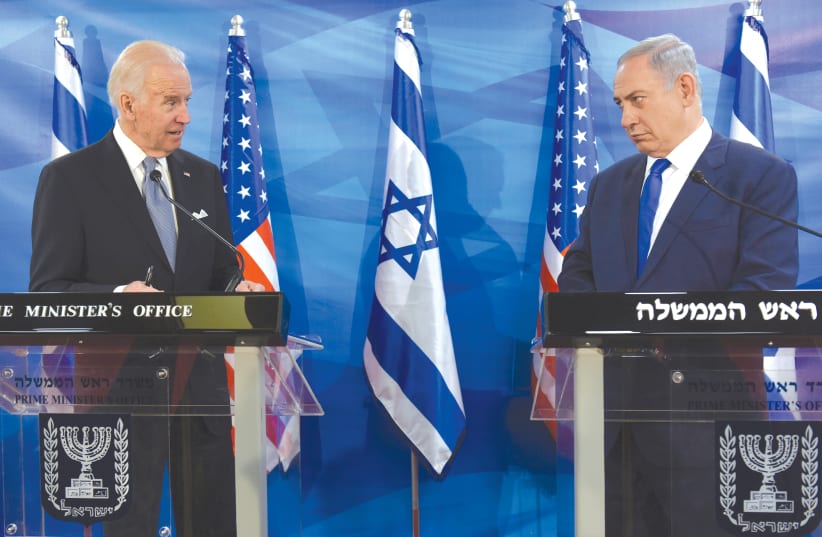On the other hand, Israel and the Gulf states voiced concerns over Biden’s desire to return to the JCPOA and demanded to be involved in any negotiations to rejoin the nuclear agreement. Ron Dermer, Israel’s ambassador in Washington, noted in a joint interview at MSNBC with Yousef Al Otaiba, UAE ambassador of the US that “both Israel and the Arab States in the region don’t support returning back to the JCPOA, and we hope that the administration will talk to us when they come in.”
Given the election will take place at the end of March, and a new government will probably be sworn in somewhere in May, Biden’s team will face a dilemma: whether to wait until there is a new government in place before approaching the Iranians, or trying to negotiate with the Islamic Republic while America’s closest ally in the region is in the middle of an election campaign, in which the Prime Minister and the Defense Minister are barely speaking.
David Makovsky, a Ziegler distinguished fellow at The Washington Institute, said that the regime would have to come to compliance with the terms of the nuclear agreement first, “and they’re not in compliance,” he said. “So, I don’t think Iran should be an issue.”Makovsky also noted that Iran would hold its election in June of 2021, affecting the time frame for negotiations, regardless of Israel’s political turmoil.
Biden also signaled that he would be open to reopening the Palestinian General Delegation of the PLO in Washington that was closed during Trump’s presidency and reestablishing the US Consulate General in Jerusalem which was shut down in 2019. “I will reopen the US consulate in east Jerusalem, find a way to reopen the PLO’s diplomatic mission in Washington, and resume the decades-long economic and security assistance efforts to the Palestinians that the Trump Administration stopped,” he told the Jewish Telegraphic Agency in May.
The question is whether Biden will decide to take the step as a part of a package that aims to bring Israel and the Palestinians to the negotiations table – which will all but guarantee it would have to wait at least until May 2021 – or whether the President-elect and his soon-to-be secretary of state Antony Blinken would see it as a separate issue that aims to restore the ties with the Palestinian Authority, and could therefore take place before there’s a new government in Jerusalem.
“The Biden administration would want to show that it can restore ties with the Palestinians after the boycott of December 2018 and yet maintain very close ties with Israel,” said Makovsky. “I think that Biden’s approach will demonstrate that this is not a zero-sum game,” he added.
The incoming ambassador to Israel, too, would find themselves in an unusual situation in which the prime minister and one of his rivals are sitting at the same cabinet – where the latter holds the title of “alternate prime minister” until May. This is expected to create a delicate diplomatic situation, and the US’
